MENU
Starting a Business
- Best Small Business Loans
- Best Business Internet Service
- Best Online Payroll Service
- Best Business Phone Systems
Our Top Picks
- OnPay Payroll Review
- ADP Payroll Review
- Ooma Office Review
- RingCentral Review
Our In-Depth Reviews
Finance
- Best Accounting Software
- Best Merchant Services Providers
- Best Credit Card Processors
- Best Mobile Credit Card Processors
Our Top Picks
- Clover Review
- Merchant One Review
- QuickBooks Online Review
- Xero Accounting Review
Our In-Depth Reviews
- Accounting
- Finances
- Financial Solutions
- Funding
Explore More
Human Resources
- Best Human Resources Outsourcing Services
- Best Time and Attendance Software
- Best PEO Services
- Best Business Employee Retirement Plans
Our Top Picks
- Bambee Review
- Rippling HR Software Review
- TriNet Review
- Gusto Payroll Review
Our In-Depth Reviews
- Employees
- HR Solutions
- Hiring
- Managing
Explore More
Marketing and Sales
- Best Text Message Marketing Services
- Best CRM Software
- Best Email Marketing Services
- Best Website Builders
Our Top Picks
- Textedly Review
- Salesforce Review
- EZ Texting Review
- Textline Review
Our In-Depth Reviews
Technology
- Best GPS Fleet Management Software
- Best POS Systems
- Best Employee Monitoring Software
- Best Document Management Software
Our Top Picks
- Verizon Connect Fleet GPS Review
- Zoom Review
- Samsara Review
- Zoho CRM Review
Our In-Depth Reviews
Business Basics
- 4 Simple Steps to Valuing Your Small Business
- How to Write a Business Growth Plan
- 12 Business Skills You Need to Master
- How to Start a One-Person Business
Our Top Picks
15 Free Tools to Learn the Basics of Coding

Table of Contents
As a new entrepreneur or startup founder, you may not have the budget to hire computer programmers to develop and maintain your business’s website and other technical aspects of your business. Although coding may seem complex and daunting, there are free tools that can help you do it yourself so you can give your business a competitive edge while saving money to invest in other aspects of your company.
15 free tools to learn coding
Coding refers to computer programming. It involves using a language to get websites and software to perform a certain way and even communicate with one another. Some basic mathematical skills help, but you don’t have to be a technology whiz to learn enough about coding to benefit your business. With these free online resources, you can learn to code for free.
1. Alison

Picture courtesy of Alison
More than 23 million learners in 195 countries have been taught by Ireland-based Alison, which offers around 850 free courses related to programming. You can drill down further and learn specific app-based skills for Microsoft Access, PowerShell and the Oracle Database.
Coding languages taught: HTML, CSS, Python, JavaScript, Java, SQL, Bash/Shell, Ruby, C++, R, C#, PHP, Swift, Kotlin, Perl, asp.net, C, Dart, Lean, jQuery, Spring and Bootstrap
2. W3Schools
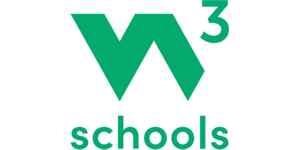
Picture courtesy of W3Schools
W3Schools advertises itself as the “world’s largest web developer site.” It educates through exercises and quizzes and contains vast plain-English directories explaining what commands in each language mean. If you’re brand-new to coding, you might find it easier to take a more structured learning journey elsewhere first. But when you feel a bit more confident, come back to W3Schools to learn more.
W3Schools divides its courses into the following subject groups: HTML, CSS, JavaScript, Python, SQL, PHP, jQuery, Java, C++, W3.CSS, Bootstrap, C, C#, R, Kotlin, Node.js, React, JSON, AngularJS, MySQL, XML, Sass, Icons, RWD, Graphics, Colors, Git, Matplotlib, NumPy, AppML, Go, TypeScript, Django, Excel, Google Sheets, Machine Learning, AI, Statistics and Data Science.
Coding languages taught: HTML, CSS, Python, JavaScript, Java, SQL, C++, R, C#, PHP, Go, Kotlin, C, TypeScript, jQuery, React, Bootstrap and Node
3. Upskill
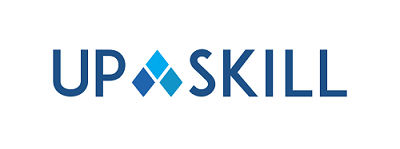
Picture courtesy of Upskill
Upskill teaches using exercises and tasks; it has more than 200 free coding lessons for people to start learning at their convenience. Its emphasis is on helping students code for the real world, so you learn how to write code to add functionality to apps and websites, like Salesforce, Dropbox and Facebook. [Learn about the Salesforce AppExchange in our review of the Salesforce CRM.]
Upskill divides its courses into the following subject groups: HTML; CSS; build a blog; the Ruby language; build a real startup; forms; databases and sending emails; user memberships and accepting subscription payments; user profiles and relational databases; HTML and CSS syntax; JavaScript (basics, intermediate and browser); build a game; build an application from scratch; how to use APIs; understanding frameworks; develop custom themes with WordPress; visualize your code, algorithm exercises, learn a JavaScript framework, JavaScript: build a modal; JavaScript: modern image gallery; JavaScript: build a paint app from scratch; learn the React framework; and computer science.
Coding languages taught: HTML, CSS, JavaScript, SQL, Ruby, C#, jQuery, React, Bootstrap, Node and Backbone
4. Udemy

Picture courtesy of Udemy
With 52 million students and 196,000 courses, Udemy is one of the world’s largest online learning centers. The platform counts 11,600 businesses as subscribers – companies that want their employees to have access to valuable lessons on everything from data science to Amazon Web Services. Although the vast majority of courses on Udemy cost money, there are 173 free courses in coding and IT-related topics. Expert tutors upload courses to Udemy for you to learn via a mixture of videos, resource packs and challenges.
Coding languages taught: HTML, CSS, Python, JavaScript, Java, SQL, Bash/Shell, Ruby, C++, R, C#, PHP, Go, Swift, Kotlin, Perl, asp.net, C, Clojure, Dart, Elixir, F#, Haskell, Lean, Lua, Rust, Scala, TypeScript, jQuery, Spring, React, Bootstrap and Node.
Udemy and Alison are also great resources for anyone looking to learn Adobe Photoshop software.
5. GeeksforGeeks
![]()
Picture courtesy of GeeksforGeeks
GeeksforGeeks has a mixture of free and paid courses in six of the main coding languages. Students can learn at their own pace through a combination of pre-recorded videos and live streams. There are also tutorials students can use to practice their emerging skills in specific areas, like machine learning, web technology and software design.
Coding languages taught: Python, Java, CPP, Golang, C#, SQL and Kotlin
According to FullStack Labs, the average freelance software developer may charge up to $300 an hour, depending on their experience. If you do opt for professional help, here are questions you should ask every web developer you interview.
6. Sololearn
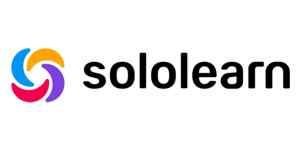
Picture courtesy of Sololearn
Sololearn offers 20 courses. You can learn programming codes and how to put the coding you’ve mastered to use in marketing coding, data science and responsive web design. Although Sololearn’s courses have been designed primarily for mobile devices, the platform works really well on desktops and laptops, too. Sololearn’s basic plan is free, but if you want to go deeper, you can opt for the Pro level, which costs $12.99 per month or $69.99 for a year.
Coding languages taught: HTML, Python, JavaScript, Java, SQL, Ruby, C++, R, C#, PHP, Go, Swift, Kotlin, C and jQuery
7. The Odin Project
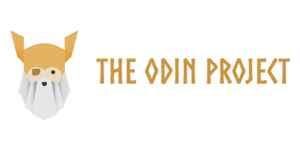
Picture courtesy of The Odin Project
The Odin Project is a free, open-source project from Thinkful, a leading online coding bootcamp that offers students one-on-one mentor-driven learning. You learn through a series of online tutorials, courses and blog posts to build projects of increasing complexity as you progress. If you get stuck, there is a forum of developers (beginner and experienced) available to help. Courses are grouped into Foundations, Full Stack Ruby on Rails, and Full Stack JavaScript.
Coding languages taught: HTML, CSS, JavaScript, SQL and Ruby
8. MIT OpenCourseWare
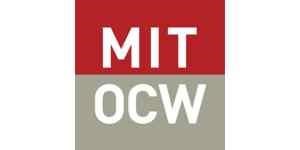
Picture courtesy of MIT OpenCourseWare
MIT’s OpenCourseWare currently has online course materials you can download for free across 217 subjects to learn computing and coding. Topics covered include AI, C, memory management and C++ object-oriented programming.
Coding languages taught: Python, Java, C++ and C at all levels, with other languages taught at a basic level
9. Khan Academy
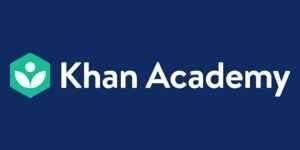
Picture courtesy of Khan Academy
Khan Academy provides free courses in the following categories: hour of code, computer programming, computers and the internet, AP/college computer science principles, and computer science. Teaching is done via a personalized learning dashboard, educational videos and practical exercises. While the organization’s aim is to prepare students for K-14, SAT, Praxis and LSAT testing, its computing material is useful for business owners far removed from their school days.
Coding languages taught: HTML, CSS, JavaScript and SQL
10. GA Dash
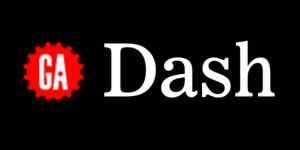
Picture courtesy of GA Dash
General Assembly has more than 30 campuses worldwide through which 80,000 students have gained vital skills in coding, marketing, project management and other areas. GA Dash is its free platform for beginner coders; it targets users who want to learn hands-on web development basics. It does this by setting challenges of increasing difficulty for students to solve one by one.
Coding languages taught: HTML, CSS and JavaScript
With your newfound basic coding skills and our five-step web design process, you can create an enticing online presence for your business.
11. Code Conquest
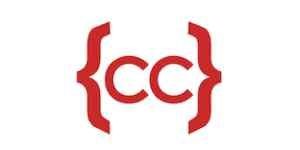
Picture courtesy of Code Conquest
There is a worldwide shortage of coders, according to Code Conquest, which led its founder (a self-taught web developer himself) to set up this site to encourage more people to join the profession. Code Conquest has a rich library of content, including coding language comparisons, coding quizzes, cheat sheets and an extensive knowledge center.
Coding languages taught: HTML, CSS, Python, JavaScript, Java, mySQL, Ruby, C++, PHP, Swift and jQuery
12. Codewars

Picture courtesy of Codewars
In martial arts, “kata” is a way of perfecting desired movements by repetition and practice. Codewars awards learners kata every time they complete a task or assignment. Nearly 1 million people earn kata on their Codewars courses every month.
Coding languages taught: Python, JavaScript, Java, SQL, Bash/Shell, Ruby, C++, C#, PHP, Go, Swift, Kotlin, C, CoffeeScript, Clojure, Coq, Crystal, Dart, Elixir, F#, Groovy, Haskell, Lean, Lua, NASM, Racket, Rust, Scala and TypeScript
13. edX
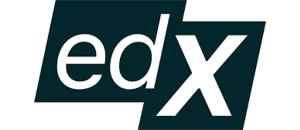
Picture courtesy of edX
Another MIT project – this one in collaboration with Harvard and 160 other educational bodies – edX features 500 computer science courses, many of which include coding in their programs. In addition to standard master’s and bachelor’s degrees (for which you have to pay, of course), edX offers short free courses specifically for executives who want to increase their knowledge and maximize their positive impact on the businesses they run.
Coding languages taught: HTML, CSS, Python, JavaScript, Java, SQL, Bash/Shell, C++, C# and C
14. freeCodeCamp
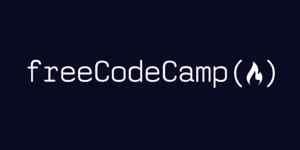
Picture courtesy of freeCodeCamp
More than 40,000 students have graduated from freeCodeCamp since its launch in 2014 and have gone on to get jobs at companies such as Amazon, Google and Apple. The service is free, and among its 8,000 tutorials, you can teach yourself about responsive web design, legacy responsive web design, JavaScript algorithms and data structures, front-end development libraries, data visualization, back-end development and APIs, quality assurance, scientific computing with Python, data analysis with Python, information security, machine learning with Python, coding interview prep and relational database (beta) certification.
Coding languages taught: HTML, CSS, Python, JavaScript, SQL, C++ and PHP
15. Codecademy
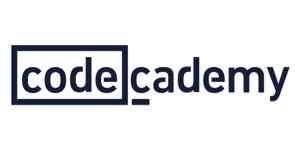
Picture courtesy of Codecademy
About 50 million people across 190 countries have started or continued their coding and programming journey with Codecademy. You learn by trial and error, thus improving your understanding of coding structure. Subjects are grouped into web development, data science, computer science, developer tools, machine learning, code foundations, web design, game development, mobile development, data visualization, interview prep, cybersecurity, math, cloud computing, DevOps, AI, data engineering, data analytics, and IT for business.
Coding languages taught: HTML, CSS, Python, JavaScript, Java, SQL, Bash/Shell, Ruby, C++, R, C#, PHP, Go, Swift, Kotlin and C
You can learn basic coding in up to 41 languages via the 15 outlets listed above. Check the table below to see which sites offer training in the programming language you want to focus on.
Language/Site | Codecademy | freeCodeCamp | edX | Codewars | Code | GA | Khan | MIT OCW | Odin | Sololearn | Geeks for Geeks | Udemy | Upskill | W3Schools | Alison |
|---|---|---|---|---|---|---|---|---|---|---|---|---|---|---|---|
HTML | Y | Y | Y | – | Y | Y | Y | – | Y | Y | – | Y | Y | Y | Y |
CSS | Y | Y | Y | – | Y | Y | Y | – | Y | – | – | Y | Y | Y | Y |
Python | Y | Y | Y | Y | Y | – | – | Y | – | Y | Y | Y | – | Y | Y |
JavaScript | Y | Y | Y | Y | Y | Y | Y | – | Y | Y | – | Y | Y | Y | Y |
Java | Y | – | Y | Y | Y | – | – | Y | – | Y | Y | Y | – | Y | Y |
SQL | Y | Y | Y | Y | Y | – | Y | – | Y | Y | Y | Y | Y | Y | Y |
Bash/Shell | Y | – | Y | Y | – | – | – | – | – | – | – | Y | – | – | Y |
Ruby | Y | – | – | Y | Y | – | – | – | Y | Y | – | Y | Y | – | Y |
C++ | Y | Y | Y | Y | Y | – | – | Y | – | Y | – | Y | – | Y | Y |
R | Y | – | – | – | – | – | – | – | – | Y | – | Y | – | Y | Y |
C# | Y | – | Y | Y | – | – | – | – | – | Y | Y | Y | Y | Y | Y |
PHP | Y | Y | – | Y | Y | – | – | – | – | Y | – | Y | – | Y | Y |
Go | Y | – | – | Y | – | – | – | – | – | Y | – | Y | – | Y | – |
Swift | Y | – | – | Y | Y | – | – | – | – | Y | – | Y | – | – | Y |
Kotlin | Y | – | – | Y | – | – | – | – | – | Y | Y | Y | – | Y | Y |
Perl | – | – | – | – | – | – | – | – | – | – | – | Y | – | – | Y |
asp.net | – | – | – | – | – | – | – | – | – | – | – | Y | – | – | Y |
C | Y | – | Y | Y | – | – | – | Y | – | Y | – | Y | – | Y | Y |
Coffee Script | – | – | – | Y | – | – | – | – | – | – | – | – | – | – | – |
Clojure | – | – | – | Y | – | – | – | – | – | – | – | Y | – | – | – |
Coq | – | – | – | Y | – | – | – | – | – | – | – | – | – | – | – |
CPP | – | – | – | – | – | – | – | – | – | Y | – | – | – | – | – |
Crystal | – | – | – | Y | – | – | – | – | – | – | – | – | – | – | – |
Dart | – | – | – | Y | – | – | – | – | – | – | – | Y | – | – | Y |
Elixir | – | – | – | Y | – | – | – | – | – | – | – | Y | – | – | – |
F# | – | – | – | Y | – | – | – | – | – | – | – | Y | – | – | – |
Golang | – | – | – | – | – | – | – | – | – | Y | – | – | – | – | – |
Groovy | – | – | – | Y | – | – | – | – | – | – | – | – | – | – | – |
Haskell | – | – | – | Y | – | – | – | – | – | – | – | Y | – | – | – |
Lean | – | – | – | Y | – | – | – | – | – | – | – | Y | – | – | Y |
Lua | – | – | – | Y | – | – | – | – | – | – | – | Y | – | – | – |
NASM | – | – | – | Y | – | – | – | – | – | – | – | – | – | – | – |
Racket | – | – | – | Y | – | – | – | – | – | – | – | – | – | – | – |
Rust | – | – | – | Y | – | – | – | – | – | – | – | Y | – | – | – |
Scala | – | – | – | Y | – | – | – | – | – | – | – | Y | – | – | – |
TypeScript | – | – | – | Y | – | – | – | – | – | – | – | Y | – | Y | – |
jQuery | – | – | – | – | Y | – | – | – | – | Y | Y | Y | Y | Y | Y |
Regex | – | – | – | – | – | – | – | – | – | – | Y | – | – | – | – |
Spring | – | – | – | – | – | – | – | – | – | – | – | Y | – | – | Y |
React | – | – | – | – | – | – | – | – | – | – | – | Y | Y | Y | – |
Bootstrap | – | – | – | – | – | – | – | – | – | – | – | Y | Y | Y | Y |
Node | – | – | – | – | – | – | – | – | – | – | – | Y | Y | Y | – |
Backbone | – | – | – | – | – | – | – | – | – | – | – | – | Y | – | – |
If you want more control over how your website looks and behaves, the best languages to learn are HTML, CSS and JavaScript.
The benefits of learning coding
Today’s businesses use desktop and mobile applications for accounting, marketing, appointment booking, sales management, human resources, payroll and more. The problem is that few of these apps talk to each other. They contain very valuable business data, but you never see it all in one place. That makes it hard for the sales team to see what the marketing team is doing, for example. If your marketers have to tell your sales reps by email or phone that they have an appointment, the process is slow, inefficient and prone to human error.
Having the ability to code (or use no-code platforms) means you can get your apps to integrate and work together. The efficiency this delivers saves you and your staff time and money and streamlines the customer experience. You can shell out large amounts of cash to hire a professional for your company’s coding and development needs, or you can take advantage of free tools to learn how to do it yourself.
As a business owner, you’ll have a new way to meaningfully contribute to your company, as well as better problem-solving skills and an improved understanding of the data and technology your enterprise relies on, ultimately giving you an edge in the modern business world.
FYI: Many of the apps you use for your business have application programming interfaces (APIs). With a little coding knowledge, you can streamline operations by connecting the different software to your API so you have a “control panel” for your entire business.
No-code development sites
If you’re not interested in doing the coding yourself, check out the growing number of “no-code” development sites. You can add 360-degree views of your products with Scapic, create workflows and automate processes with Parabola, build mobile apps with Bubble, and get spreadsheets and databases to talk to each other with Airtable. You don’t have to learn a line of code to use any of these tools, yet your company will benefit.
No-code and low-code website development sites such as Wix, Webflow and Squarespace allow you to create advanced design layouts and interactions without any need for programming skills. Learn more in our overview of the best website builders.












